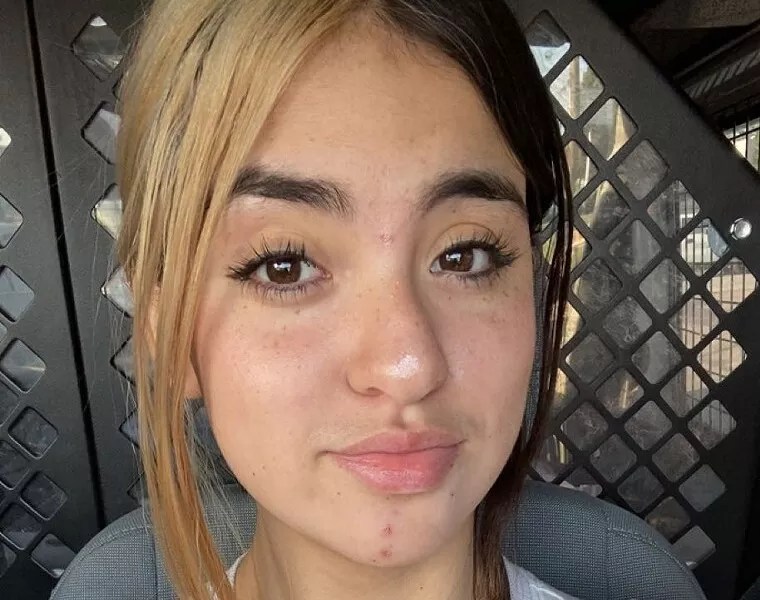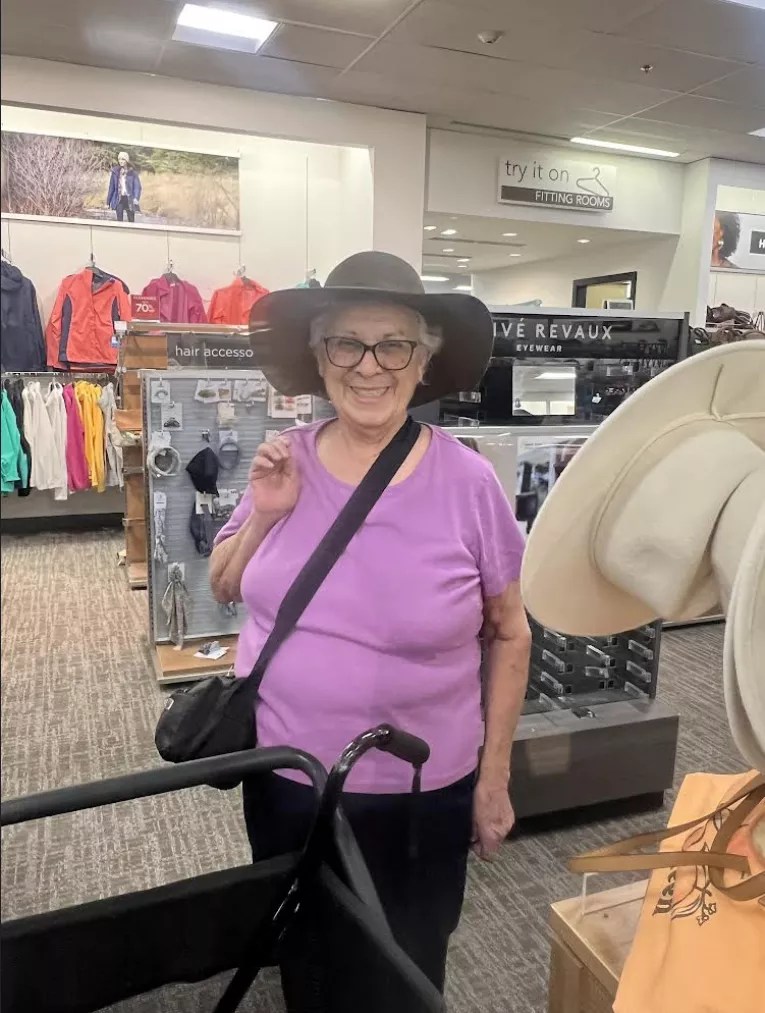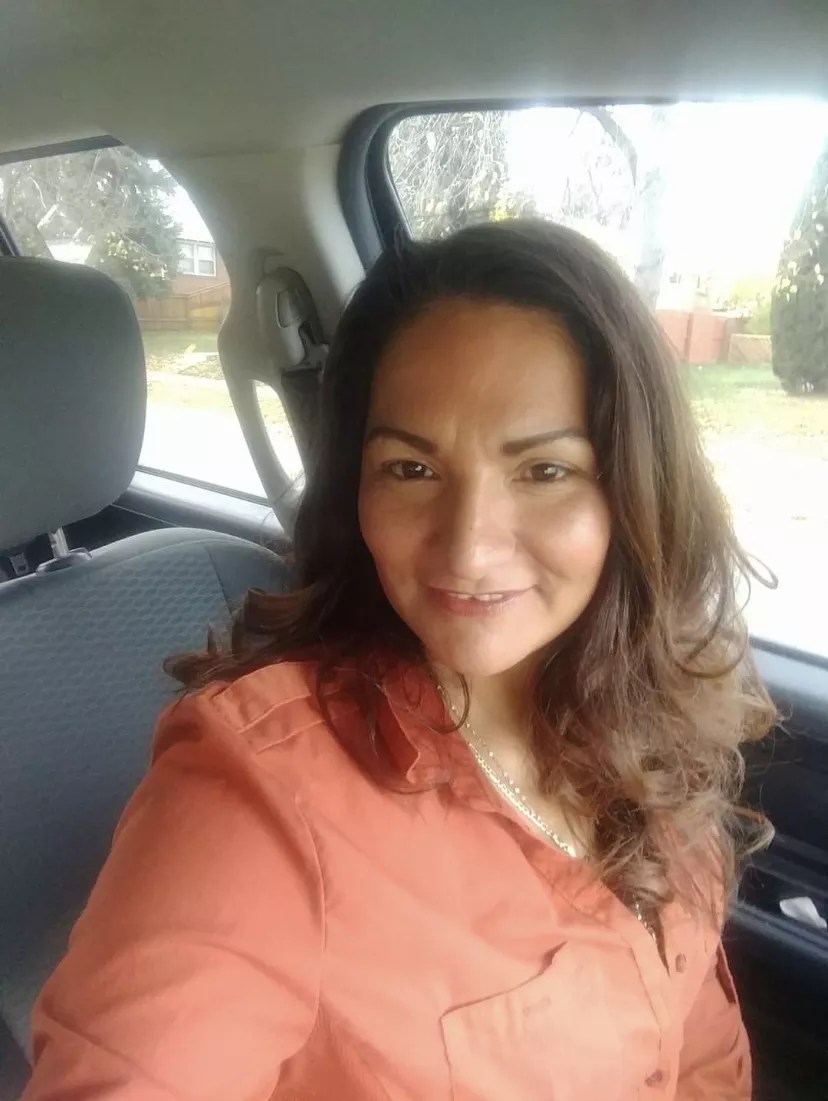
Angelique Martinez

Audio By Carbonatix
Editor’s note: Angelique Martinez is a freshman attending Colorado’s Finest High School of Choice in Englewood. In her first semester, she joined a psychology/sociology class titled “Ok Boomer Generational Studies,” and the class was tasked with interviewing two different generations, along with answering the same ten questions themselves as part of Generation Z. They were given options for how to turn in the final project, but Martinez decided to pass those up in favor of pitching it as an article. Her teacher, Professor of Global Studies Brian Cramer, told her that if she could get Westword to run it, he would give her extra credit.
Martinez says that she is an aspiring author; she loves to read and write, and hopes to one day publish her work and also become a general mental health therapist. We admit it: We’re here for that, so read on for the perspectives of three Colorado women who come from very different generations and backgrounds.
Q&A With Three Generations of My Family
As most people know, the generations have been changing dramatically over the years. Technology, fashion, education – everything evolves over time. However, no one seems to acknowledge the amount each generation has been changing over the years.
When analyzing generational studies, one important aspect that does not change regardless of the generation is stereotypes. Stereotypes have been labeling generations for years, but do most people from each generation fit their generational stereotype? Generational studies are important, because everyone has a story to tell. We need to be willing to listen. An individual from an older generation may not fit their stereotype.
I asked two very different generations about their teen years: the Silent Generation (born between 1928 and 1945, this is the generation that came after the Greatest Generation and before the Baby Boomers) and Generation X (born between 1965 and 1980, though that may change slightly on either end, depending on the source). I also answered the questions as a member of Generation Z (roughly those born 1995 to 2010). Not surprisingly, the answers varied quite a bit from these generations. Following each round of questions, I’ve included an analysis of whether each interviewee exhibits the typical characteristics for each generation (gleaned from Pew Research and crowdsourcing with classmates).
Frances Baledras (aka Grandma Nacho), 79, the Silent Generation
Where were you born?
In Brownsville, Texas. It was always very hot out there, and we never were able to have an air conditioner because we were poor, but now I’m nice and cool here.
Where did teens hang out when you were a teen?
I didn’t go anywhere; my parents were very strict. I just went to school and back to the house. I always stayed home and was never allowed to leave.
How did you get to and from school when you were a teen? Walking. I would walk in the morning to school; in the afternoon when we got out at 3 or 3:30 every day, I would walk home. If it was raining or in the hot weather, I would walk home. Walking and walking. It was kind of hard.

Frances Baledras, aka Grandma Nacho, was born and raised in Texas, but came to Colorado in the Sixties.
Angelique Martinez
What was the first electronic device you owned? At what age did you get that device?
I never had a phone growing up, nothing like that. I received the phone when I came to Denver, but I was already a grownup by then. I never had a phone back home.
How has the media changed from when you were a teen to now?
That’s why I’m here watching TV all day. I never watched it, because we never had one at home. I was a very poor person. We couldn’t afford a TV. If we wanted to see the cartoons, we would have to walk across the railroad tracks to a friend’s house; we had to look through the window and see the cartoons. Only on the outside of the house. We were never allowed to go inside and watch the TV.
What toys did you play with as a teenager?
We used to play ball. We were not allowed to ride the bicycle because we were girls. Only the boys, my brothers, were allowed to ride the bicycle. We would play hide-and-seek, but we would never have too much fun, no. I would just stay home.
What type of clothes would you wear as a teenager?
Secondhand clothes. Everything: the shoes, and I don’t know if I should tell you this, but my mama, she made me underwear from the flour sack. The sack from where the flour comes, we would use to make tortillas. My mama used to make my underwear out of it, with a little flour on it.
What type of music was out when you were a teenager?
We used to have a real long battery, and we would connect it to the wires from the radio. That’s the music we would hear, and it was Mexican music. No English, only Spanish music.
How was your freedom managed as a teenager?
My father and mother were very strict. I was never allowed to go and visit my friends, no friends to my house, either. I would only see them in school. We weren’t allowed to go to church; my father would not let us go to church. Not even downtown to the theater to see a movie, no. He never let us do that. I was 21 years old and had to be at home with my brother and my mother at 10 o’clock. I wish I could go back to being a teenager so I could enjoy it.
Analysis: Grandma Nacho is my great-grandmother and lives in Littleton. She came to Denver from Texas in 1966, when she was 23. Based on a comparison of the Silent Generation’s characteristics, she is not a stereotypical member of that generation. Some of the Silent Generation’s general characteristics are as follows: determination to get money; loyalty to beliefs; respect for authority; traumatized; determined; working in the system; self-sacrifice; and a great work ethic. Grandma Nacho possesses two out of eight of these characteristics. She, as an individual, grew up differently from the other wide range of Silent Generation people. Her answer to the question “How was your freedom managed as a teenager?” indicates that she was loyal to authority growing up, but not to a fault. Additionally, when she replied about the curfew she had as a 21-year-old adult, she illustrates her amazing will of self-sacrifice.
Margarita Rivera, 50, Generation X
Where were you born?
I was born in Matamoros, Tamaulipas, Mexico. I would’ve liked to grow up in the United States. We didn’t have much over there. My sister raised us because my mom had to work in the United States. When we came here, it was very different to me. We started going to school all the time, because over in Mexico, we didn’t have a lot of school; the education was very different. Everything was very different. If I grew up here, it would have been a lot different for me as a teenager.
Where did teens hang out when you were a teen?
We all hung out in the neighborhood. Most of the kids came over to our house, because we had a big family and there were a lot of kids, so all the kids in the neighborhood would hang out at our house.
How did you get to and from school when you were a teen?
A school bus. I took a school bus to school and back home every day. The bus was very small, and not a lot of kids went on it because not a lot of kids went to school.
What was the first electronic device you owned? What age did you get that device?
It was a house phone, like in ’85, so I was thirteen at the time. That was the first phone I had, the home phone.

Margarita Rivera was born in Mexico and came to Colorado when she was twenty.
Angelique Martinez
How has the media changed from when you were a teen to now?
When I was a teen, it was a black-and-white screen. Now it has changed a lot; the screen isn’t black, it’s colorful. A big difference, and the shows were very old and typically only one show would ever be on. I remember we used to watch cartoons on Saturdays. Now there is a guide to different TV channels and many more things to watch.
What toys did you play with as a teenager?
I didn’t have toys, but we used to play outside and made our own things. Me, my siblings and the other kids would make up our own games. We didn’t have toys, though; maybe for Christmas we would get a set of dishes.
What type of clothes would you wear as a teenager?
I would wear jeans, and I remember everyone used to fold them on the bottom. We used to wear really big shirts and boots. Boots were really popular at the time in Mexico.
What type of music was out when you were a teenager?
Well, for us it was all the Spanish music, but it was the older kind. Los Tigres del Norte had come out a couple years before I was born, and their music was the only music you would hear on the streets back then.
How was your freedom managed as a teenager?
We were always able to go around the neighborhood because my mom knew where we were. It was a very small neighborhood; after school we would go to [the houses of] my aunts, grandmas, or neighbors. We couldn’t go anywhere else, though, not to the movies or the stores. We didn’t do anything else, and by the time the sun went down, we were supposed to be home. That was our curfew.
Analysis: Interviewee Margarita Rivera is my grandmother, and she lives in Commerce City. She moved to Colorado when she was around 20 years old, about thirty years ago. Her experience growing up was even less typical of Generation X, especially considering she grew up in Mexico. Some Generation X members show the following characteristics: resourceful; independent; rebellious; focus on work-life balance; a reputation for being “slackers and whiners”; tech-savvy; and skeptical. Rivera’s answers contained three of eight of these characteristics, but note that she grew up in a different time, as well as a different country. When asked about toys she played with, her answer showed that she was resourceful, and her independence as well as work-life balance is shown throughout her time of arriving in the United States. It’s worth noting that she stopped going to school after eighth grade to work with her mom.
Angelique Martinez, 14, Generation Z
Where were you born?
I was born in Denver.
Where did teens hang out when you were a teen?
Teenagers hang out everywhere. At school, the mall, Elitch’s, anywhere, really. They find out where their friends will be and text each other until they see each other anywhere, then they’ll hang out for a couple of hours.
How did you get to and from school when you were a teen?
My parents drive me. My dad drives all the way from our house to school and back. It’s a mediocre short drive, not bad.
What was the first electronic device you owned? What age did you get that device?
The first electronic device I owned was a small ZTE phone that my dad gave me. I was about three years old at the time. I had only used the phone for playing different kinds of games and watching YouTube.
How has the media changed from when you were younger to now?
When I was younger, I would watch all the basics: Disney Channel, Cartoon Network, PBS Kids, and Wassabi Productions on YouTube. Growing older, the content has changed so much over time. The Cartoon Network is over, PBS Kids is kind of unheard of, the Disney Channel is kind of the same, but YouTube has changed dramatically. There were never really 3 a.m. challenges or the huggy-wuggy things I know my younger siblings watch.
What toys did you play with when you were younger?
I was a doll collector. I collected all the Monster High and Tinkerbell dolls. I would collect all my McDonald’s Happy Meal toys. I would also collect Shopkins. I had a whole shelf and toy basket full of my toys.
What type of clothes do you wear as a teenager?
I wear all different styles of clothes; everyone does. Personally, it sounds silly, but I like to wear colors of clothes that match with a pair of shoes I have. Stereotypically, everyone my age says they hate skinny jeans, while I tend to love them more for me. My style isn’t unique; it’s fairly basic, actually. Everyone just wears what they like and what they feel expresses them.
What type of music was out when you were a teenager?
I listen to various types of music. Spanish music is the main type of music that I personally listen to. Everyone listens to a bunch of different types of music, though. Hip-hop, pop and even oldies music. There’s no specific music type “assigned” to our generation.
How is your freedom managed?
Every teenager is different. It’s a dangerous world due to society nowadays; my parents always make sure that I’m safe. I’m allowed to go out with my friends. I have a job and go to work often. I don’t do much other than go to school, work and stay home, though.
Analysis: I live in Denver. My generation, Gen Z, is the second-newest generation. Gen Zers are generally known as being pragmatic; valuing direct communication and relevance; they have grown up with technology and the internet; tend to be well-educated and politically progressive; possess an average attention span of eight seconds; are less optimistic than Millennials; and are pro social change. It looks like I possess five out of eight of these characteristics, making me a more stereotypical Gen Zer, even though as an individual I am much more than these stereotypes. My answer to the question of electronic devices and the age I first got one proves that. Like others of my generation, I grew up with technology all around me.
Westword.com frequently publishes essays on matters of interest to the Denver community. Have one you’d like to share? Send it to editorial@westword.com, where you can also comment on this piece.